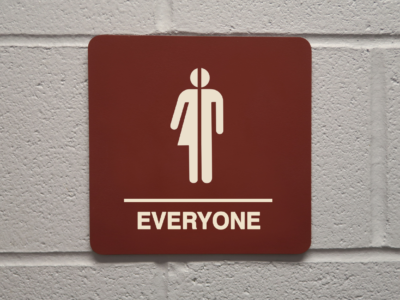
There’s no avoiding it. Ever since the dawn of time, or at least the dawn of modern society, tattoos have had a stigma attached to them. Perceived to be the art of the unruly, tattoos are often seen as an undesirable trait amongst employees – fearing that they will give the wrong impression to clients or customers.
But with 35% of 25-39 year olds sporting body art, and peak tattoo set for 2025, the younger generations are going to be indelibly marked and increasingly so. So what does this mean for their chances of employment?
A recent study conducted by DPG Plc. surveyed 1,000 hiring decision makers, asking them how tattoos were perceived in the workplace. Their aim: “to gauge the widespread acceptance of a once shunned body modification in our modern, cosmopolitan world.”
Rather, and sadly, unsurprisingly, it was revealed that 64% of employers think that tattoos are an ‘undesirable feature in the workplace’. In addition, 54% of those surveyed said they think that tattoos have a ‘negative impact’ on the workplace. This was compounded by the respondents ranking tattoos as the second most likely trait to limit career potential next to scruffiness.
Other key findings:
Those over 55 years old were the most likely to see tattoos as undesirable, and to have a negative impact on the workplace.
Male hirers were more discriminatory across the board.
30% of respondents thought that visible tattoos could help determine a candidate’s performance.
43% believe that visible tattoos can determine a candidate’s character.
Only 13% would hire someone with a tattoo if it was a choice between an equally qualified candidate and themselves.
In fact, DPG Plc. also found that certain tattoos had very specific stigmas attached to them: a back-of-the-neck tattoo means you’re a racist; hand tattoo that you’re a criminal; arm – drug user. But with millions of young people sporting these tattoos there is simply no way these can be true.
This, as with many things in recruitment, comes down to confirmation bias. The hiring decision makers are clearly showing prejudice against tattooed candidates based on their pre-existing ideas of what tattoos indicate about a person.
And whilst we are thankfully dismantling prejudices based on gender, ethnicity and class, why then are we not also tackling discrimination against those who choose to decorate their bodies?
As it stands, there is currently no legislation in place to protect tattooed workers – unless the tattoos are of religious or cultural significance. This means that a candidate who is discriminated against will find it almost impossible to contest the employer’s decision.
However, Managing Director at DPG Plc., Paul Drew thinks this is about to change: “It appears that tattoos are only growing in popularity, so I wouldn’t be surprised if we saw a large discrimination case soon – potentially leading to increased protection for tattooed workers, similar to the recent developments in obesity legislation.
What remains to be seen is if companies develop with our country’s interests and fashions or whether a significant portion of the workforce is forced to look elsewhere.”
Whilst I am not suggesting that workplace dress codes ought to be done away with, to judge a candidate’s ability to perform their job based on their desire to get a tattoo is frankly appalling. And, regardless of our own opinions on tattoos, we ought to be able to see past them when it comes to finding the right candidate for a job.
For more information, click on the following link: https://www.dpgplc.co.uk/2017/05/tattoos-still-taboo-workplace/
[Tweet “Tattoo Discrimination: A Final Taboo?”]
[subscribe2]









